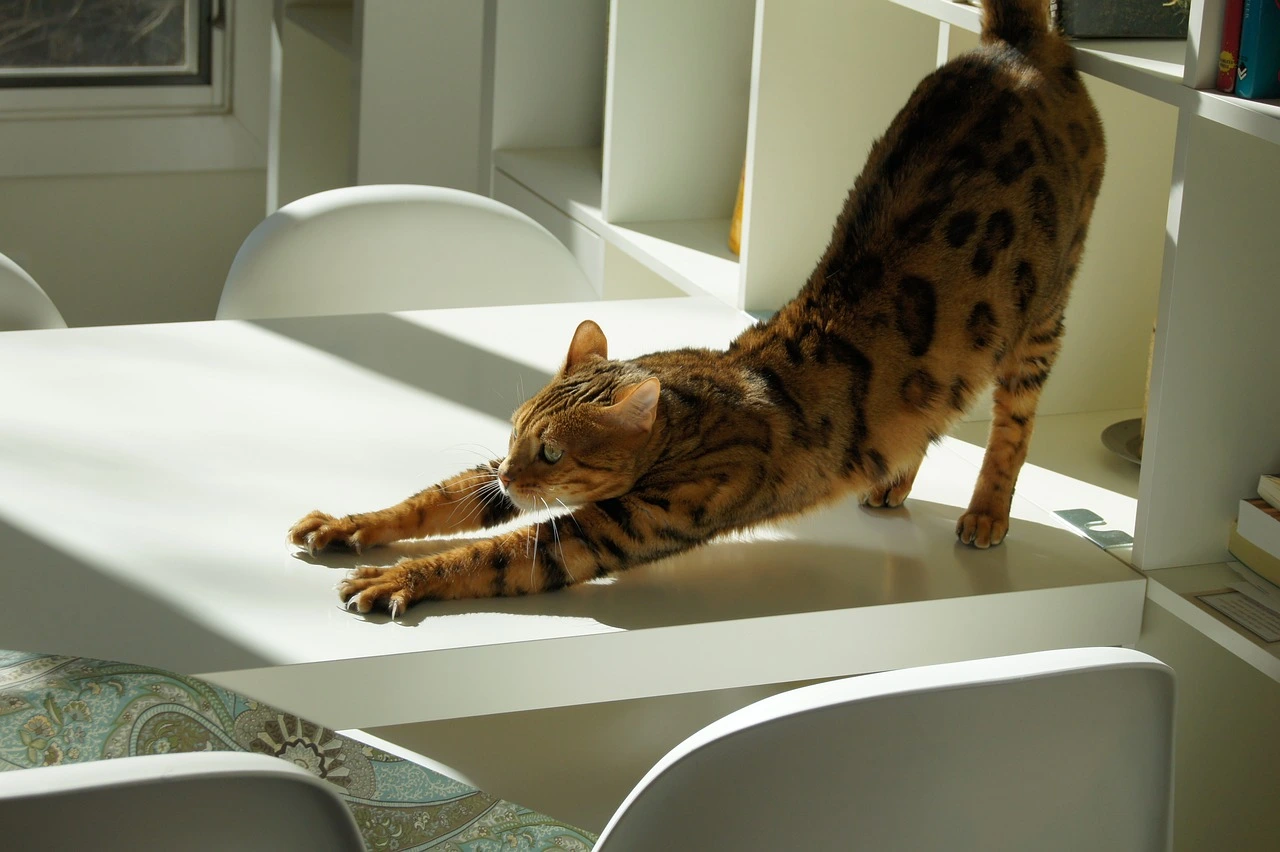If you’re a cat owner, you might have experienced or heard about the confusing behavior known as spraying. It’s not something we expect from our furry friends, but male cats often do it, and it can be puzzling and frustrating. You may be wondering, “When do male cats start spraying?” or “Is this something I should worry about?” Well, you’re not alone in these questions, and today we’re going to dive deep into this topic to help you better understand why cats spray and how you can handle it.
Male cat spraying is a natural part of feline behavior, but it often takes many cat owners by surprise. Let’s explore when it begins, what triggers it, and how you can manage it. Whether you’re a new cat owner or someone who’s dealt with spraying before, this guide will offer insights into understanding and dealing with this behavior.
Table of Contents
- What Is Cat Spraying?
- When Do Male Cats Start Spraying?
- Why Do Male Cats Spray?
- How to Prevent Male Cats from Spraying
- What Happens if You Don’t Address Spraying?
- FAQ
- Conclusion
What Is Cat Spraying?
Before we talk about when male cats start spraying, it’s important to understand what spraying actually is. Spraying is different from regular urination, where your cat uses the litter box. When a cat sprays, they release a small amount of urine on vertical surfaces like walls, furniture, or curtains. This behavior typically involves the cat backing up to the spot, lifting their tail, and releasing urine while making a distinctive, short burst.
You might wonder: Why do cats do this? And why is it usually males who spray more often? Let’s explore this further.
When Do Male Cats Start Spraying?
You might be wondering when this behavior begins in male cats. Generally speaking, most male cats start spraying when they reach sexual maturity, which is around 5 to 6 months of age. This timing can vary slightly depending on the breed, environment, and whether the cat has been neutered.
Spraying is typically linked to the onset of puberty, as male cats’ bodies undergo hormonal changes. Once they hit puberty, male cats feel the urge to mark their territory and attract potential mates. This is when you’ll most likely start noticing spraying in your male cat.
However, it’s worth mentioning that spraying doesn’t always happen immediately when a cat matures. In some cases, it may take longer, while others might start earlier. If you have a young male cat and you’re beginning to notice some odd behavior, it might be a sign that your cat is maturing.
Why Do Male Cats Spray?
Now that you know when male cats start spraying, let’s explore the underlying reasons behind this behavior. There are several triggers that can cause a male cat to spray:
1. Territorial Behavior
Male cats, especially unneutered ones, are highly territorial creatures. Spraying is a way for them to claim their space and assert dominance over other animals. If there are other cats in the neighborhood or even in your household, your male cat might spray to establish his territory and ward off potential rivals.
2. Attracting Mates
As mentioned earlier, when a male cat reaches sexual maturity, he may spray to communicate his availability to female cats in the area. The scent left behind serves as a “marker” to alert females that he’s ready to mate.
3. Stress or Anxiety
Sometimes, male cats spray when they’re feeling stressed or anxious. Changes in their environment—such as a move to a new home, the introduction of a new pet, or changes in the household routine—can cause your cat to feel unsettled. This stress can manifest in spraying behavior as a way to cope.
4. Health Problems
In some cases, spraying can be linked to medical issues, such as urinary tract infections (UTIs) or bladder problems. If your cat has been spraying more than usual, it’s a good idea to rule out health concerns by visiting your vet.
5. Lack of Proper Litter Box Use
If a male cat feels his litter box is dirty or not to his liking, he might spray to avoid using it. Ensuring your cat has a clean, accessible litter box could help curb unwanted spraying behavior.
How to Prevent Male Cats from Spraying
If your male cat has started spraying or you want to prevent it altogether, there are several steps you can take to help manage this behavior.
1. Neutering
The most effective way to reduce spraying is to have your male cat neutered. Neutering eliminates the hormone-driven behaviors associated with spraying, especially in unneutered males. This will likely significantly reduce or completely stop the spraying behavior.
2. Provide a Safe, Stress-Free Environment
If stress is triggering your cat’s spraying, try to reduce anxiety in your cat’s environment. Provide plenty of hiding spots, comfortable resting areas, and avoid sudden changes in your household. If there are other cats around, consider using pheromone diffusers to create a calming atmosphere.
3. Use of Cat Repellents
If your cat is spraying certain areas, you can use commercial cat repellents or natural deterrents, like citrus sprays, to discourage him from spraying in those spots.
4. Keep Litter Boxes Clean
Make sure your cat’s litter box is clean, well-maintained, and placed in a quiet, accessible location. Some cats may spray if they don’t feel their litter box is up to their standards.
What Happens if You Don’t Address Spraying?
If you allow spraying to continue without addressing it, the behavior could escalate. It may become a more ingrained habit, and your home could start to smell unpleasant. Additionally, spraying may signal that your cat is stressed or unhealthy, which could lead to more serious behavioral or medical issues down the line.
FAQ
1. Do all male cats spray?
Not all male cats will spray, especially if they are neutered early. However, it is a common behavior in unneutered male cats as part of their territorial and mating instincts.
2. Can spraying be stopped?
Yes! Spraying can often be stopped or significantly reduced by neutering, reducing stress, and addressing any health issues. Behavioral changes may also help in managing the behavior.
3. How can I tell if my cat is spraying or just urinating?
Spraying typically involves small amounts of urine on vertical surfaces. If your cat is urinating normally, it will usually be in their litter box or on flat surfaces.
Conclusion
Understanding when male cats start spraying and why they do it is key to managing this behavior. While it can be frustrating, remember that spraying is part of natural cat behavior, especially in unneutered males. Early neutering, reducing stress, and addressing any health issues can go a long way in preventing and stopping spraying. If you’ve noticed your cat spraying, take a deep breath—it’s not the end of the world. With the right steps, you can help your cat feel more comfortable and keep your home spray-free.






